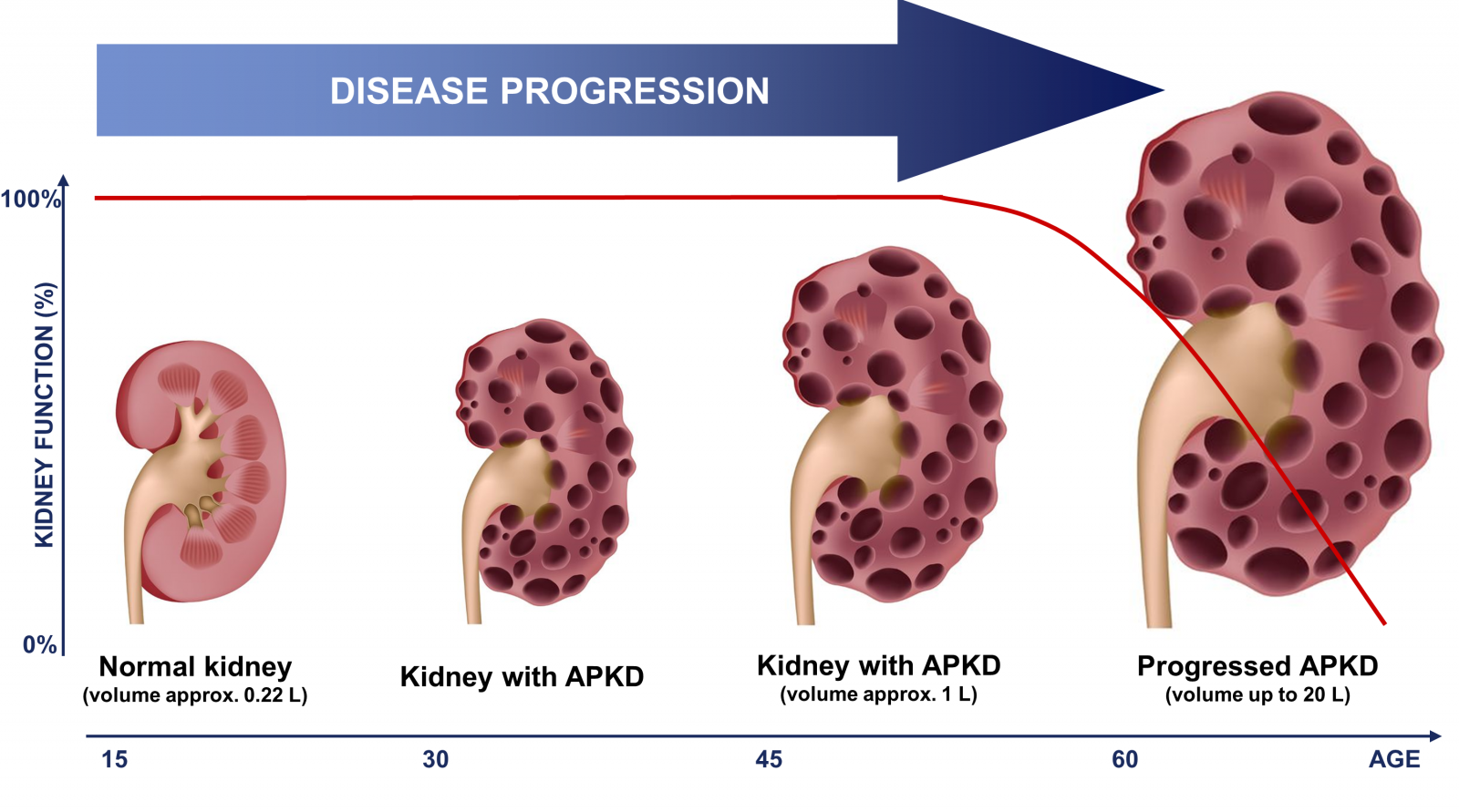A new study finds that even low levels of the ketone body beta-hydroxybutyrate (BHB), below the level that would be considered ketosis, may have a beneficial impact on the progression of polycystic kidney disease (PKD).
A large group of people with PKD was followed for up to 6 years to investigate the association between BHB levels, decline in kidney function, and total kidney volume. The authors conclude, "Our observational data support the hypothesis that raising beta-hydroxybutyrate levels by diet or drugs could reduce the rate of disease progression in patients with ADPKD." This study adds to the growing body of evidence such as the recent KETO-ADPKD study showing that increased levels of BHB are beneficial for people with PKD.

Key Findings
- In-depth analysis revealed that higher BHB levels are correlated with a slower rate of kidney function decline in PKD patients, a finding that could revolutionize the approach to managing this condition.
- The study observed that even mild elevations in BHB levels are associated with a slowed decline in kidney function. These BHB levels are lower than the minimum levels (0.8mmol/L) described in another recent study, suggesting that even low BHB levels may be beneficial in the long term.
- Impressively, every doubling in BHB levels was linked to an improvement in the annual rate of eGFR by 0.33 (ml/min/1.73m²), suggesting a significant protective effect on kidney filtration rate over time.
- While BHB levels did not show a direct association with changes in total kidney volume in this study, they were positively correlated with eGFR, suggesting that BHB levels have potential as an independent marker in PKD monitoring.
- These findings are in harmony with emerging data from animal studies, which indicate that ketogenic diets are protective in PKD and that BHB mediates these effects.
Background on PKD and BHB
One intriguing aspect of PKD cells is their unique metabolic characteristics, a heavy reliance on glucose and inefficient use of ketone bodies like BHB. By increasing BHB levels through dietary changes or supplementation, it may be possible to affect their dysregulated metabolism. Ketogenic diets, fasting, and even sustained exercise can help to reduce glucose and insulin levels, ultimately stimulating the production of BHB and other ketone bodies in the liver. BHB stands out in this metabolic cascade because it plays a role beyond just energy production; it can also decrease inflammation and fibrosis as well as neutralize free radicals directly and indirectly via the body’s own antioxidant enzymes to reduce oxidative stress, offering several tangible benefits for those with PKD.
Study Overview
This study used the extensive data from the DIPAK cohort, a group of 670 participants with ADPKD from four medical centers in the Netherlands that were carefully monitored over a period of up to 6 years. The study's prospective cohort design is particularly significant as it reflects the real-world experiences of PKD patients, offering a window into the natural progression of this challenging disease.
Significance and Implications
This is the first time that evidence linking BHB levels to kidney function decline in PKD patients has been demonstrated on such a large scale, both in terms of patient numbers and study duration. It is an important step in the evolution of research into diet and lifestyle interventions to help manage PKD as it links early animal studies to small experimental human trials with observational studies in larger patient groups over longer periods of time.
Potential Impact and Future Directions
These results bolster the hypothesis that interventions that elevate BHB levels could slow the disease progression in PKD patients. The authors suggest that higher BHB levels, such as those achieved with ketogenic diets, could potentially translate to an improvement of eGFR around 9-12 (ml/min/1.73m²) after a 10-year follow-up. This would be a very significant difference for many people with PKD that may make the difference in moving from one stage of the disease to the next. These promising findings underscore the need for further intervention trials and research to confirm these results and explore the practical applications of dietary or supplemental methods to increase BHB levels.
Conclusion
This study shows that even modest increases in BHB levels are associated with slower decline in kidney function over a long period of time in a large group of PKD patients under real-world conditions. The medical food KetoCitra® was designed specifically to offer a simple and reliable way to support the long-term nutritional needs of individuals with ADPKD by increasing circulating levels of the ketone body BHB. In addition to supplying BHB it also provides citrate and alkaline minerals to help normalize urinary citrate levels and urine pH, providing additional nutritional support to individuals with ADPKD who are likely to form kidney stones that may further worsen the condition.
For more information about KetoCitra®, visit the website here: https://santabarbaranutrients.com/

MS (Human Nutrition)
Director of Manufacturing &
Product Development at SBN

Laisser un commentaire: